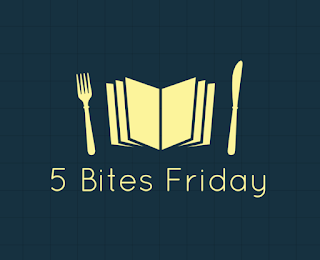Welcome to 5 Bites Friday: my weekly article where I share
the contents of my learnings from the past week in my life.
1 – what I read
The Swerve: how the world became modern by StephenGreenblatt – a story of how renaissance, the great return, began, this is book
is the story of the humanist scholar and book hunter of 15th century,
Poggio Bracciolini and how his discovery of Lucretius’s poem-book ‘On the nature
of Things’, based on the philosophy of Epicurus, helped ignite the cultural and
ideological revolution where the west went back to their Greek and Roman roots in
order to change their day. Greenblatt’s accessible prose and fascinating storytelling
makes this not only one of the most important books to read but also a most enjoyable
one.
2 – this week’s articles
Robert Burton and his Anatomy of Melancholy @aeon – a story
of a writer, researcher, philosopher and his only book upon which he spent all
his life: ‘Anatomy of Melancholy’ is a six volumes, 1400 pages long book which
gathers an encyclopedia of the disease ‘melancholy’, including its causes and
numerous cures. This articles explains how it was written – and how Burton’s
whole life consisted of only writing this single book.
Carl Jung, do the next right thing @themarginalian – Popova,
through the letters of famous psychologist Jung, explains the fragmented method
of living out one’s life in as good a way as possible: by doing the next right
thing, again and again.
Moral intuition about deepfakes @psyche – while the evil possibilities
of deepfakes are unsettling and out-right disastrous, this articles moves our
attention to some of its morally good applications as well, and makes a case
for using the technology in a controlled manner rather than cancelling it.
4 ways to resilience @nytimes – focusing on the
post-pandemic life and people’s need for gathering themselves back up, this article
presents four practical ways to better handle adversities and come out the
other end intact: build a strong social network; find moments of optimism;
interrupt stress cycle; embrace the shake-up.
Immediate family @newyorker – as expected from The New Yorker,
this is a brilliantly written, moving, and comprehensive profile of the one of
the most daring and unique writers I’ve come across, Maggie Nelson; for anyone
interested in reading Nelson, start here.
3 – what I watched
For Sama (2019) – a documentary filmed by a journalist during
the tumultuous and violent years of Syrian protest to take down the corrupt and
authoritarian government of Bashar al-Asad. Her husband a doctor and volunteer,
herself an activist and journalist all by her own, they give birth to Sama,
their daughter, and this is their way of explaining why she was brought into
this world – a terrible world, as it can be sometimes. Gut-punching and heart-wrenching.
Klaus (2019) – a story of Santa Claus, albeit a rather eccentric
one, this animated movie tells the story of Jesper, a spoiled child of riches,
sent by his father to a distant island town as a postman in order to force him
to become a conscious and responsible man. How he accomplishes his task and how
he meets Klaus and together the change everything there, is told movingly and thoughtfully
with a lot of lessons to be learnt. Light and warming!
4 – video recommendations from YouTube
The history of our world in 18 minutes @TED – a story of ‘Big
History’, this talk takes us to the beginning of our world and travels through
all the time that have elapsed to our present-day. Informative and perspective-shifting.
My top 10 books of 2021 @RickMacDonnell – a booktuber whose
taste in book most resonates with the kind of books I want to read, MacDonnell’s
list of his best books has left me, and might do the same for you, with a few
books that I most anticipatedly look forward to read.
Why movie theatres aren’t dead yet @vox – an excellent video
that explains the link between movie producers, theatre owners (where the movies
are displayed and earn most of their money), and the emerging streaming
services (where the movies are then made available for public indefinitely),
and shows why movie cinemas still hold a significant role in the success of
movies even in the post-pandemic world.
5 – this week’s quote


